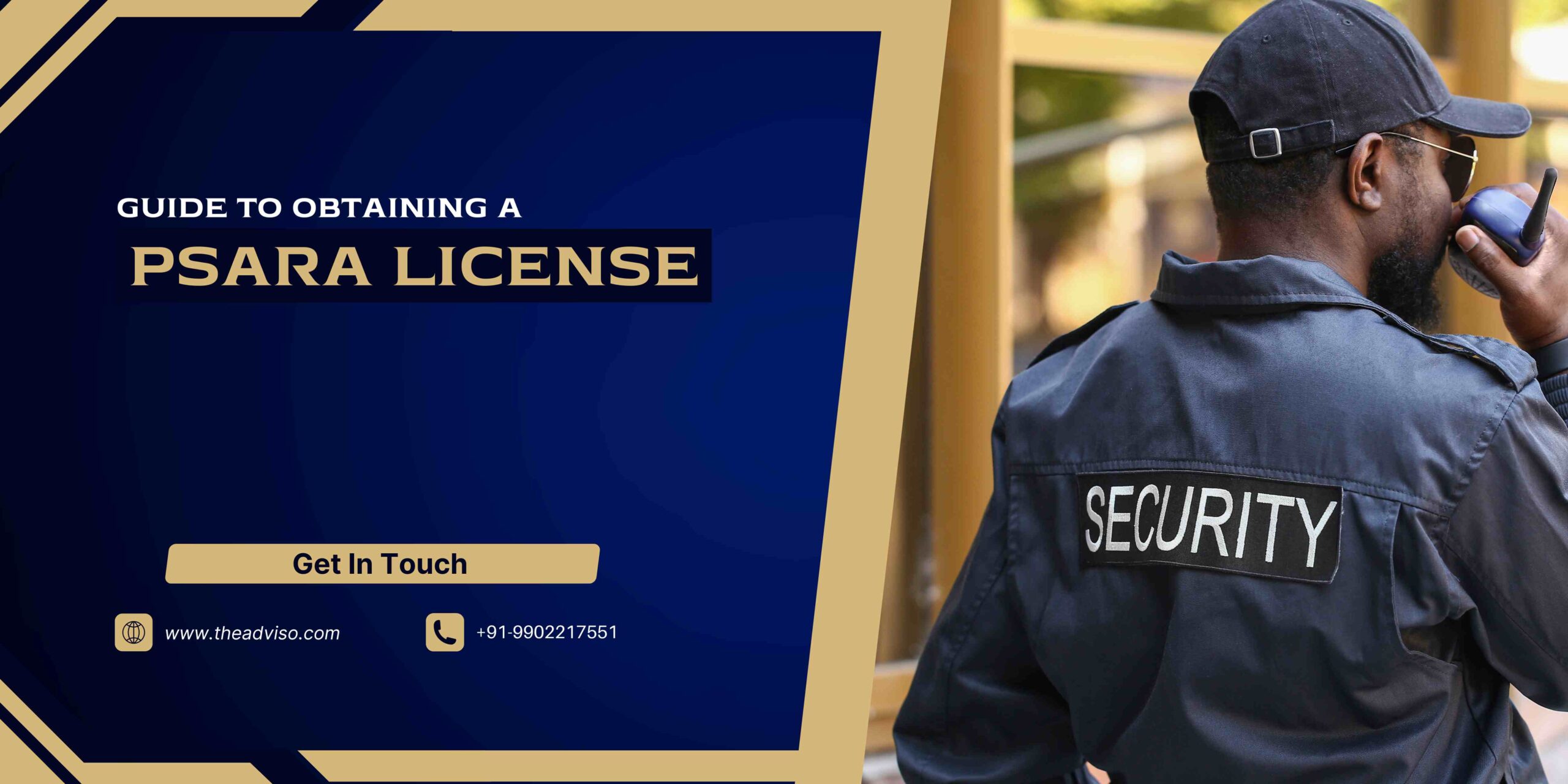PSARA License
PSARA license serves as a mandatory legal document for entities intending to serve the private security domain. In short, it is a founding document for private security firms in India. Securing a PSARA registration requires fulfilling various requirements such as filing the prescribed application form, partnering with a training institute, harnessing the skill of the security personnel, undergoing a thorough inspection process etc. This article unfolds what is required to secure this approval from the competent authority alongside eligibility criteria, norms, and supporting paperwork.
An overview of the PSARA license
The history of the PSARA registration dates back to 2006, a time when local authorities and law institutions grappled to oversee the ever-increasing crime rate in metro cities. Shopping malls, business avenues, banks, and valuable establishments etc faced the constant threat from offensive elements. To address this rising concern, GOI enacted the Private Security Agencies Regulation Act in 2006. This legislation is dedicated to elevating the standard of private security firms while providing local authorities with an extended arm to curb the ever-rising crime rate in India.
In a nutshell, the PSARA license seeks;
- To regularize private security agencies and their operation, thereby elevating their standard
- To make private security agencies’ operations as transparent as possible
- To enhance the quality and standard of services rendered by the private security agencies
- To ensure thorough background checks and comprehensive training of security personnel.
- To make private security agencies liable for their services and actions
- To confirm whether private security agencies are law-abiding or not
- To underpin operational guidelines and minimum standards for operations performed by private security agencies
- To safeguard the interest of peers, stakeholders, security personnel and end-users
- To confirm whether private security agencies conform to fair employment practices
Underlining paperwork requirement for PSARA license in India
The table below lists the registration documents based on the legal structure of the entity:
| Documents | Sole Proprietorship | Partnership Firm | Private Limited Company | LLP |
| Proof of Identity | Yes | Yes (All Partners) | Yes (All Directors) | Yes (All Partners) |
| Proof of Address | Yes | Yes (All Partners) | Yes (All Directors) | Yes (All Partners) |
| Photographs | Yes | Yes (All Partners) | Yes (All Directors) | Yes (All Partners) |
| Character Verification Report | Yes | Yes (All Partners) | Yes (All Directors) | Yes (All Partners) |
| Affidavit | Yes | Yes | Yes | Yes |
| Security Training Certificates | Yes | Yes | Yes | Yes |
| Office Proof | Yes | Yes | Yes | Yes |
| Income Tax Returns | Yes | Yes | Yes | Yes |
| Partnership Deed | N/A | Yes | N/A | N/A |
| Certificate of Incorporation | N/A | N/A | Yes | Yes |
| Memorandum and Articles of Association (MoA and AoA) | N/A | N/A | Yes | N/A |
| Board Resolution | N/A | N/A | Yes | N/A |
| LLP Agreement | N/A | N/A | N/A | Yes |
| Fee Receipt | Yes | Yes | Yes | Yes |
| Employee Details | Yes | Yes | Yes | Yes |
Legend:
- N/A: Not Applicable
- Yes: Required for the respective company structure
Check out our web stories: 6 Easiest Ways To Obtain Shop and Establishment Act Registration
Steps to secure the PSARA License in India
Every private security firm in India must have a PSARA registration or else they won’t be able to perform their operation. Below is the step-by-step guide which will help you secure this approval easily. The steps have been curated in the purview of the PSARA Act to ensure utmost compliance.
Step 1: Arrange Supporting Documentation
The first step involves gathering the relevant paperwork given the company’s legal structure. Go through the erstwhile section wherein the documents are listed in the tabular form.
Step 2: Sign an MOU with a certified Training Institute
In this crucial step, you are required to contact the certified security training institute, which will harness the skill and facilitate relevant training to security personnel in the purview of the PSARA Act. To affirm that security personnel imbibe the right skill set and training, sign an MOU with the institute as a part of compliance.
Step 3: Perform Application Filing
You can visit the respective controlling authority of the state where your agency resides to apply for the PSARA license. If you operate on a pan-India basis with multiple agencies functioning in different states, you must file separate applications for each state.
Step 4: Antecedent Verification
Once the application is filed, the authority conducts a verification of the principal officers and the business’s antecedents. The jurisdictional controlling authority and local police provide the authority with the necessary aid to speed up the probing process.
Step 5: Issue of PSARA registration
As soon as the authority is done inspecting the paperwork and antecedents with no loophole found, the license shall be awarded to the application, reinforcing that from onward the entity resides under the PSARA Act and hence is eligible to perform notified operation.
What about the PSARA License Cost and Timeline?
The timeline for securing the PSARA registration differs state-wise, and the documents provided. Generally, the inspection process can continue for 3-4 months depending on scalability, compliance threshold and paperwork intricacy. Coming to the PSARA approval fee, there are four fee slabs to consider that vary depending on the area of operation:
- For One District: Rs. 5,000/-
- For Up to Five Districts: Rs. 10,000/-
- For More than Five Districts: Rs. 25,000/-
- For Entire State: Rs. 25,000/-
Conclusion
PSARA license is a mandate for private security agencies in India. After securing this approval, they need to abide by the norms cited under the PSARA Act. They must follow rules to stay compliant, be it a matter of signing up an MOA, assigning tasks to security personnel, or managing the records.
Read Our Article: Understanding Business Setup In UAE: A 8 Steps Guide




